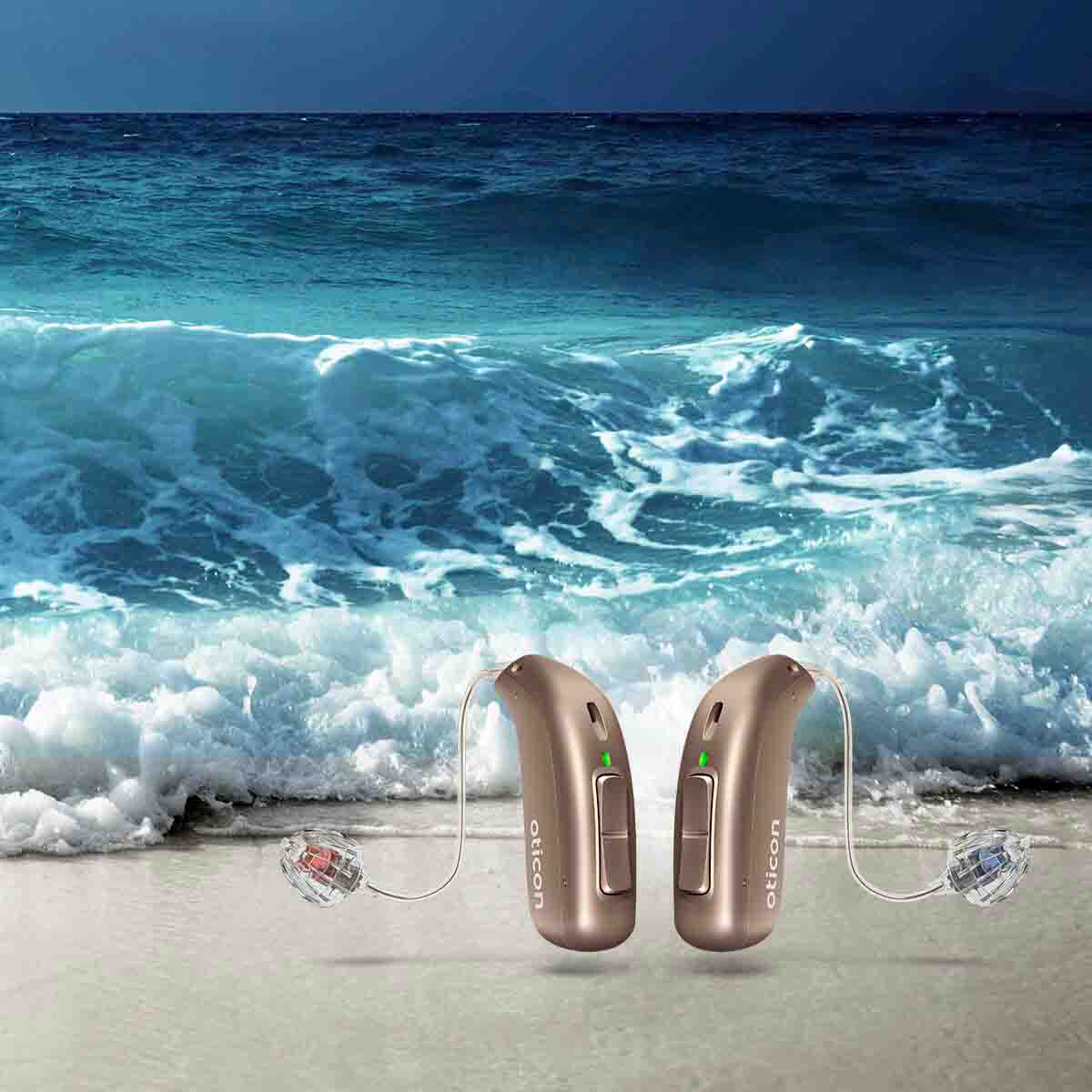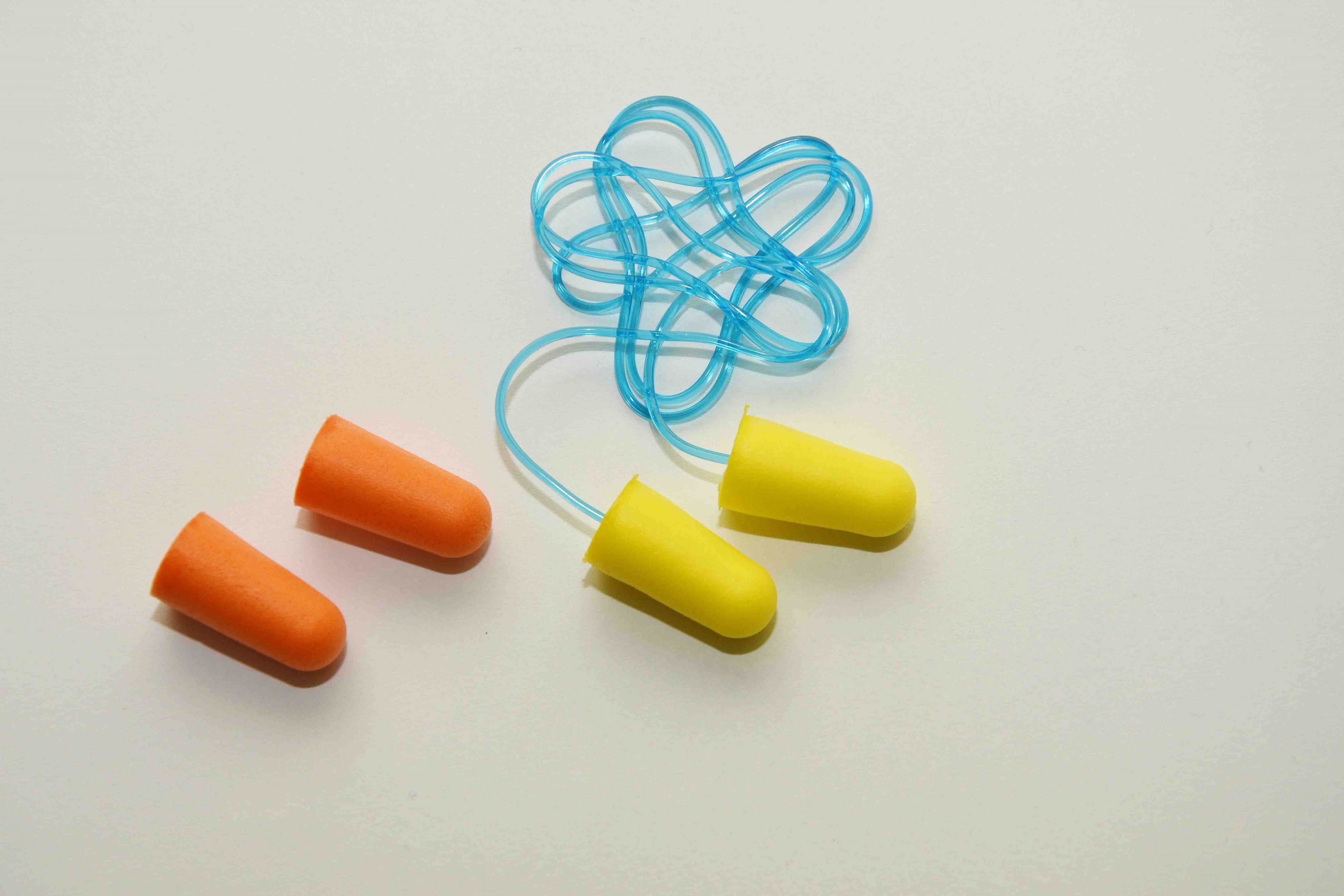|
www.HearingDirectory.ca |
How to treat tinnitus
By Calvin Staples, Master of Science in audiology, Aud (C), Reg. CASLPO, Audiologist, and Shantelle Shakes, BA (Hons)., Hearing Health Information Coordinator, Hearing Directory  Reviewed by
Chelsea Kuhn-Grise, Hearing Instrument Specialist Reviewed by
Chelsea Kuhn-Grise, Hearing Instrument Specialist Last updated on: October 23rd, 2025 While there is no cure for tinnitus, there are many treatment options. Learn more about ways to get relief and which treatment plan may work best for you or your loved one. Key points:
Tinnitus treatment options
Although there is no cure or approved medication for tinnitus, there are many treatment options that can help you manage the ringing in your ears. If the ringing in your ears lasts at least five minutes and occurs more than once a week, you may have tinnitus. If the sound comes and goes, you may have temporary tinnitus. Most likely no treatment is needed. However, if your tinnitus does not go away, speak to a tinnitus specialist near you. Your clinician can provide a tinnitus assessment and recommend the best treatment.
Hearing aids
provide sound therapy for tinnitus. Tinnitus is common, and often connected to hearing loss and noise exposure. If you have tinnitus and hearing loss, a hearing aid could treat both your conditions. Some people report they experience tinnitus more frequently when listening in a challenging environment. By reducing listening effort, your perception of ringing noises can be reduced. Hearing aids reduce your effort to hear, so you spend less time focusing on the act of listening. Some hearing aids also have built-in sound therapy. The sound therapy uses a “masking” effect. It hides the ringing in your ear, allowing your brain to concentrate on hearing other real sounds. Initially, you may feel like your tinnitus is less loud. Long-term hearing aid use, paired with appropriate auditory counselling, may eventually reduce tinnitus. If hearing loss is severe, cochlear implants are an option, too.
Tinnitus sound therapyYou can use sounds like crashing ocean waves, falling rain and instrumental music for sound therapy. Even white noise like the sound of a fan or running water can provide tinnitus relief. Sound therapy appsSound therapy apps can help you target the frequency of your tinnitus and mask it with a soothing sound. These apps may reduce tinnitus loudness and make it feel less intrusive. Some options include:
Tinnitus retraining therapyTinnitus retraining therapy (TRT) uses a strict framework of sound therapy and counselling to treat tinnitus. More studies are needed to prove its effectiveness. Speak to your hearing professional to learn more about this option.
Tinnitus habituationTinnitus habituation is a treatment focused on mental health in which you learn to get used to the sound. It addresses the anxiety and fear cycle that worsens tinnitus. With it, you learn how to deal with tinnitus spikes and other stressors. Meditation can be a useful tool to "habituate." With practice, the brain forgets about the sound, so it is less distracting and intrusive.
Cognitive behavioural therapyCognitive behaviour therapy (CBT) is conducted by a mental health therapist or psychologist. CBT focuses on reducing your negative reactions to tinnitus.Through a series of appointments, a trained professional attempts to reduce tinnitus-related stress and anxiety. More studies are needed to prove the effectiveness of CBT as a tinnitus treatment. For many people, a combination of sound therapy and counselling are most helpful. Signs that tinnitus is going awayIn addition to the sound going away or becoming less noticeable, signs that your tinnitus may be going away include quality of improvement markers, like these:
Tinnitus is linked to a decline in mental well being and sleep deprivation. An improvement in one or more of these areas could be a sign that your tinnitus is gone or more manageable. Tips to reduce your risk of tinnitusIf you have tinnitus, you likely have another issue to address. This is because tinnitus is a symptom. It is not considered a disease on its own. For example, if your ears are ringing when you are sick with the flu, the ringing will likely go away once you recover from the flu. Here are some ways you can reduce your risk based on what the underlying issue could be. Limit noise exposure
from noises that may trigger tinnitus. The biggest culprit is noise. A loud concert, a table saw, a gunshot blast – these can lead to tinnitus and noise-induced hearing loss. Excessive noise can damage the hair cells of the inner ear that detect sound waves. This malfunction of the inner ear can cause tinnitus. Use hearing protection, like ear plugs or ear muffs, to protect your hearing. Also, try to limit your exposure to loud noises by choosing quieter appliances, minimizing the sound sources in your environment and avoiding loud sounds when you can. Treat an underlying health conditionThe following health conditions are linked to tinnitus. Your tinnitus may go away once they are treated:
This is not an exhaustive list. Your tinnitus specialist can help you identify which health condition may be causing your tinnitus and provide the appropriate solution. ExerciseExercise can reduce stress-related tinnitus. Try an exercise that incorporates relaxation and meditative breathing, like yoga, walking or tai chi. Regular exercise can also lower blood pressure, a condition that can worsen tinnitus. 
tinnitus. Healthy eating habitsFoods rich in B vitamins, carotenoids, omega-3 fatty acids, zinc, and magnesium may help reduce tinnitus. If you have a deficiency in these vitamins and minerals, increasing your intake through supplements or different foods can be helpful. A Mediterranean diet incorporates a lot of fruits and vegetables, beans, lentils, nuts, extra virgin olive oil and fish. These foods provide much of the vitamins and minerals listed above. There are many different factors that can influence which tinnitus treatment you choose and which will ultimately be the best one for you. Sources: Healthy Hearing. Vitamins, minerals and supplements for hearing problems. Healthy Hearing. Does diet affect tinnitus? Frontiers in Neurology. Unilateral cochlear implantation reduces tinnitus loudness in bimodal hearing: a prospective study Calvin Staples, Master of Science in audiology, Audiologist
Shantelle Shakes, BA (Hons)., Hearing Health Information Coordinator, Hearing Directory
You are reading about: Related topics
More information about hearing aids. Featured clinics near me
Schedule a hearing test with Healthy Hearing. Find a clinicThe Healthy Hearing Report |
|
www.HearingDirectory.ca |
How to treat tinnitus
By Calvin Staples, Master of Science in audiology, Aud (C), Reg. CASLPO, Audiologist, and Shantelle Shakes, BA (Hons)., Hearing Health Information Coordinator, Hearing Directory  Reviewed by
Chelsea Kuhn-Grise, Hearing Instrument Specialist Reviewed by
Chelsea Kuhn-Grise, Hearing Instrument Specialist Last updated on: October 23rd, 2025 While there is no cure for tinnitus, there are many treatment options. Learn more about ways to get relief and which treatment plan may work best for you or your loved one. |
 Are you located in the United States?
Are you located in the United States?


 Contributing author Calvin Staples is an audiologist with over 15 years of experience in the hearing field. He holds a Master of Science in audiology from Missouri State University. Calvin’s professional interests include hearing aid technology and verification, tinnitus treatment, auditory training counselling services, and the effects of noise on hearing. Calvin also coordinates and teaches at Conestoga College in the Hearing Instrument Specialist program. Aside from Audiology, Calvin was an excellent endurance athlete who represented Canada several times internationally as a distance runner. Calvin has a wife and three children and lives in the Waterloo region.
Contributing author Calvin Staples is an audiologist with over 15 years of experience in the hearing field. He holds a Master of Science in audiology from Missouri State University. Calvin’s professional interests include hearing aid technology and verification, tinnitus treatment, auditory training counselling services, and the effects of noise on hearing. Calvin also coordinates and teaches at Conestoga College in the Hearing Instrument Specialist program. Aside from Audiology, Calvin was an excellent endurance athlete who represented Canada several times internationally as a distance runner. Calvin has a wife and three children and lives in the Waterloo region.
 Shantelle Shakes is the hearing health information coordinator for Hearing Directory. She has over ten years of experience in the health industry, with nine of those years in hearing healthcare. After graduating from York University with an honours BA in professional writing, minor in creative writing, Shantelle began her marketing career with a major hearing healthcare provider. Through a variety of roles within that company, Shantelle gained a thorough understanding of hearing health and the client experience. She aims to use her knowledge of the industry as well as her communications background to help others understand their hearing and connect with the hearing care they need.
Shantelle Shakes is the hearing health information coordinator for Hearing Directory. She has over ten years of experience in the health industry, with nine of those years in hearing healthcare. After graduating from York University with an honours BA in professional writing, minor in creative writing, Shantelle began her marketing career with a major hearing healthcare provider. Through a variety of roles within that company, Shantelle gained a thorough understanding of hearing health and the client experience. She aims to use her knowledge of the industry as well as her communications background to help others understand their hearing and connect with the hearing care they need.